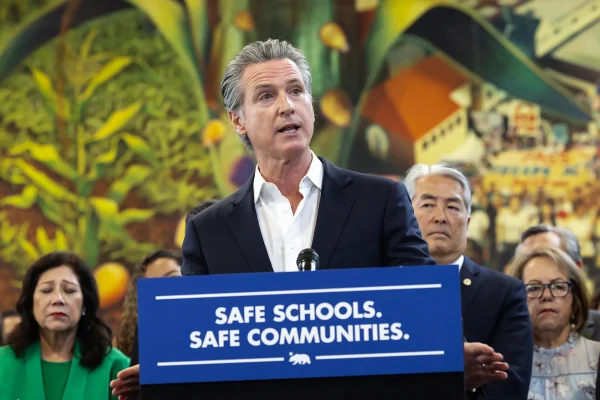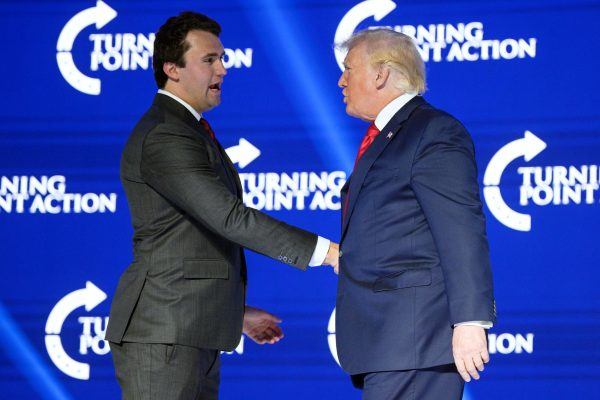Professors respond to US rejoining Paris Climate Agreement
What will this mean for domestic and global action?
President Joe Biden signed an official order rejoining the United States to the Paris Climate Agreement on his inauguration, Jan. 20. The U.S. has now been a part of the Accord since Feb.19, almost four years after former President Donald Trump and his administration announced it would pull out, claiming the agreement was a bad deal for the U.S. economy. Now many are wondering what this agreement will mean for domestic and global action.
“When I think of climate change, I think of jobs, a key build back recovery plan is building a modern, resilient climate infrastructure and clean energy future that will create millions of good-paying union jobs,” said Biden during a press conference on climate change, on NBC News, Jan.27, seven days after rejoining the U.S. in the Paris Agreement.
Rejoining the Paris Climate Agreement has been a long-time plan for Biden’s strategy to curb global warming. Within this plan, Biden hopes to spend around $1.7 trillion to swiftly deploy clean energy technology around the country, with an enforcement mechanism to reach the first stage goals by 2025 and the final goal of zero emissions by 2050.
The Paris Climate Agreement is an international treaty intended to reduce the emission of greenhouse gases. The agreement is sponsored by the United Nations Framework Convention on Climate Change (UNFCCC) and went into effect in November 2016. According to the UNFCCC, the agreement seeks to limit temperature increases in the 21st century to below 2 degrees Celsius and encourage initiatives that bring the increase down to 1.5 degrees Celsius or lower.
The Paris Climate Agreement replaced the Kyoto Protocol, a global treaty signed in 1997 that was also intended to mitigate the risks of greenhouse gas emission. All countries participating in the Paris Agreement are expected to prepare, communicate and maintain nationally determined contributions (NDCs). These contributions include regular reports on gas emissions and efforts and timeframes to reduce them. Starting in 2023, and then every five years after that, the UNFCCC will report on progress to limit the greenhouse effect worldwide.
In addition to long-term temperature goals, key aspects of the Paris Agreement include the responsibility of developed countries to support the efforts of developing countries and a framework for climate change education and training that emphasizes public awareness, public participation and public access to information. Several political science professors at College of the Desert commented on the reunification.
“Many other countries have recognized that climate action and clean technology represent a major economic opportunity. Countries that are early movers in this space will be at a competitive advantage,” says Bryan Lee, a political science professor at College of the Desert. Lee also works in the clean technology and hydrogen fuel cell vehicle industry outside of teaching.
“It is important to note that many of America’s geopolitical rivals have recognized this as well. China has explicitly stated that it aims to gain dominance in the cleantech space. As a result, the decision to abdicate American leadership on climate action will be politically and economically detrimental to the United States over the long-run,” said Lee.
In response to whether rejoining the Paris Agreement was the right thing for the Biden administration to do, Mario Moreno, a political science professor at College of the Desert, said he believed that president Biden rejoining the Paris Agreement has very little to do with care for the environment but more do to with an attempt to rectify mistakes committed by the Trump administration.
Moreno said,” If the Biden administration genuinely wanted to do something for the environment, well, we might need to address one of our largest trading partners, China and India. The biggest challenge here is integrity and justifying why we are playing by the rules while other countries are not, and those two things are quickly eroding, along with the calls for unity.”
Biden has said that the U.S. will host an international climate summit on April 22, where the administration will be expected to present a carbon reduction plan to limit global warming to 1.5 ˚ C by 2030.
Climate change efforts worldwide have managed to lower the projected warming of 2.1˚ C, but we are already experiencing a 1.1˚ C decrease in warming and will most likely reach 1.5 unless all emissions reach zero by 2040. Due to COVID-19 shutting down many economies, 7% of global emissions dropped in 2020. To keep warming below 1.5˚ C, 7% of emissions would have to continue being cut every year for the next decade for a lasting impact.
With the U.S. back in the Paris Climate Agreement and Biden’s “leading by example” initiative, countries might have a better chance at reaching lower emissions within a decade.
“Many nations take their lead from the U.S., and we have ways in which to ensure countries ‘do right,’ such as sending or denying aid. Rejoining the Paris Agreement will help send a signal that concern for the climate should be taken seriously and will encourage other nations to take the required action,” said Dr. Jesse Neimeyer Romero, a political science professor at College of the Desert.

Adjoa is majoring in journalism and communications, and though her passion lies in writing, it also lies in humanitarian efforts. She aspires to become...





